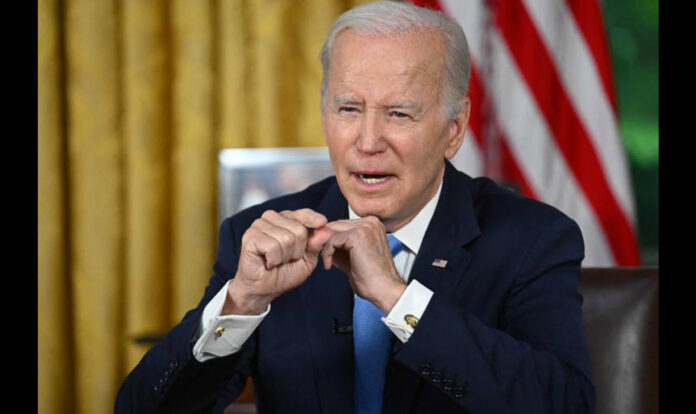In a recent development that has sent shockwaves through diplomatic circles, United States President Joe Biden made a bold statement referring to Chinese President Xi Jinping as a “dictator.” The remark was made during a closed-door meeting with key advisors, indicating a growing concern within the Biden administration regarding China’s leadership and its impact on global affairs.
While Biden’s comments have garnered attention and raised eyebrows, they also present a significant diplomatic challenge for US-China relations. The description of Xi Jinping as a “dictator” by the US President reflects a departure from the more measured tone adopted by his predecessors, who often emphasized engaging with China on common global challenges while balancing concerns about human rights and authoritarian practices. Biden’s comments suggest a shift towards a more confrontational approach to China, with a focus on addressing the country’s internal governance and its implications for international stability.
This statement comes amidst escalating tensions between the two superpowers, including disputes over trade practices, human rights issues in Xinjiang and Hong Kong, territorial disputes in the South China Sea, and cybersecurity concerns. While the United States has long been critical of China’s actions in these areas, Biden’s choice of words signals a more direct and uncompromising stance, potentially setting the stage for a more confrontational relationship between the two nations. The diplomatic challenge for the Biden administration lies in striking a delicate balance between expressing concerns about China’s policies and maintaining open channels for dialogue and cooperation on pressing global issues such as climate change, nuclear proliferation, and regional stability.
The need to address shared challenges, coupled with the desire to hold China accountable for its actions, necessitates a nuanced and strategic approach. China has swiftly responded to Biden’s remarks, with its Foreign Ministry labeling them as “slanderous” and accusing the US of interfering in its internal affairs. This exchange of rhetoric underscores the deepening divisions between the two countries and further complicates efforts to find common ground. As the world’s two largest economies and major global powers, the United States and China have a shared responsibility to navigate their differences and find areas of cooperation. Biden’s characterization of Xi Jinping as a “dictator” adds a new layer of complexity to an already strained relationship, requiring careful diplomacy and pragmatic engagement.
The international community will be closely watching the subsequent developments in US-China relations, particularly as the Biden administration continues to articulate its China strategy. Balancing the need to protect democratic values, address human rights concerns, and safeguard national security interests while maintaining constructive engagement is a formidable task. The manner in which both nations approach this challenge will have far-reaching implications for the future of global geopolitics and the stability of the international order.


